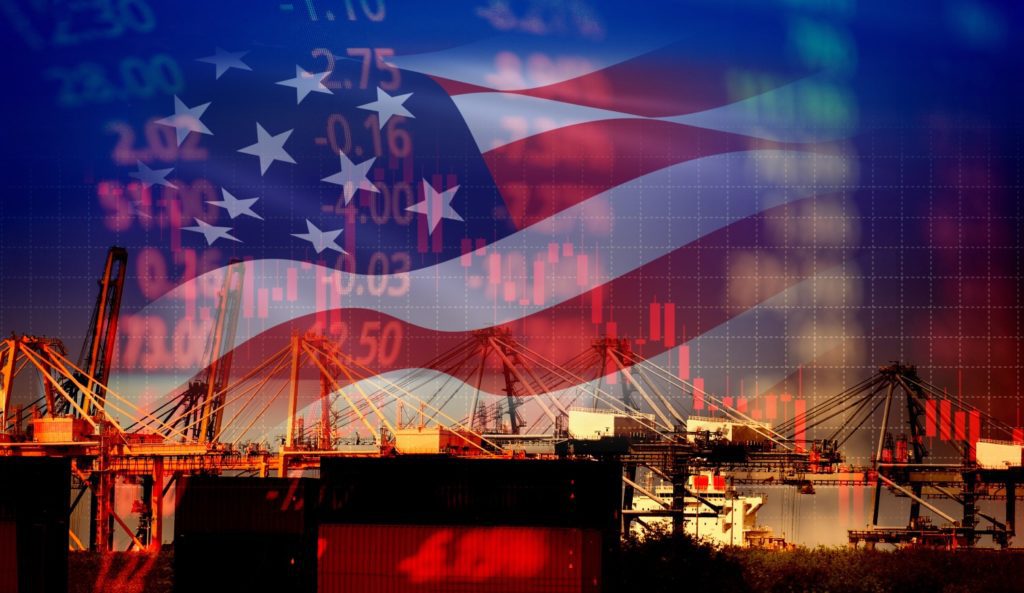 Regardless of their personal politics or their assessments of his social-media antics, manufacturing CEOs have to be grateful to President Trump for at least one thing: raising the profile of their industry to an ever-present public priority.
Regardless of their personal politics or their assessments of his social-media antics, manufacturing CEOs have to be grateful to President Trump for at least one thing: raising the profile of their industry to an ever-present public priority.
Brookings Institution has just released yet another indicator of one of the effects of Trump’s continual rhetoric about American manufacturing through the three years of his presidential campaign and administration: 72 percent in a new survey now believe manufacturing is very important or somewhat important to the U.S. economy, yet only 17 percent are very confident in its future.
These results demonstrate a highly outsized importance in the public mind for a sector that has been shrinking dramatically. Manufacturing drove only 12 percent of U.S. economic output last year, according to the federal Bureau of Economic Analysis, contributing $2.33 trillion to the gross domestic product – and that was only half of its percentage of GDP in 1970. Blame the rise of global manufacturing competition and the burgeoning of the U.S. service economy. Fewer than nine percent of Americans now work in manufacturing jobs.
Yet at a time when many manufacturers are going begging for workers as they never have before, 47 percent of the 2,001 people surveyed by Brookings would encourage young people to get a job in the sector. Only 20 percent wouldn’t. Meanwhile, U.S. manufacturers lately have begun to struggle a bit with market softness, more so than at any time during the Trump administration.
Americans’ assessment of the importance and prospects of manufacturing, not surprisingly, vary demographically. Older citizens, men and Midwesterners and Southerners in the survey were more confident about the future of U.S. manufacturing than younger people, women and those in the Northeast and West.
The survey results bore other sure imprints from the Trump era of U.S. manufacturing. Forty-five percent opposed Trump’s decision to impose 25-percent tariffs on Chinese goods, while 35 percent supported them. The same demographic patterns as for confidence in the future of manufacturing demonstrated themselves in support for the president’s approach to Tariffs (older citizens, men and people in the Heartland) and opposition.
Also, when asked about the biggest barriers to the manufacturing sector, the highest number of those surveyed – 23 percent – cited government regulations, the very factor fingered by Trump before his inaugural and the one most affected by his pro-business actions since then. Twenty-one percent named poorly trained workers as manufacturing’s biggest obstacle, 14 percent cited high taxes, and 8 percent claimed energy costs.
Read more: Manufacturers Leaving Money On Table After Corporate Tax Reform

Chief Executive Group exists to improve the performance of U.S. CEOs, senior executives and public-company directors, helping you grow your companies, build your communities and strengthen society. Learn more at chiefexecutivegroup.com.
0

1:00 - 5:00 pm
Over 70% of Executives Surveyed Agree: Many Strategic Planning Efforts Lack Systematic Approach Tips for Enhancing Your Strategic Planning Process
Executives expressed frustration with their current strategic planning process. Issues include:
Steve Rutan and Denise Harrison have put together an afternoon workshop that will provide the tools you need to address these concerns. They have worked with hundreds of executives to develop a systematic approach that will enable your team to make better decisions during strategic planning. Steve and Denise will walk you through exercises for prioritizing your lists and steps that will reset and reinvigorate your process. This will be a hands-on workshop that will enable you to think about your business as you use the tools that are being presented. If you are ready for a Strategic Planning tune-up, select this workshop in your registration form. The additional fee of $695 will be added to your total.

2:00 - 5:00 pm
Female leaders face the same issues all leaders do, but they often face additional challenges too. In this peer session, we will facilitate a discussion of best practices and how to overcome common barriers to help women leaders be more effective within and outside their organizations.
Limited space available.

10:30 - 5:00 pm
General’s Retreat at Hermitage Golf Course
Sponsored by UBS
General’s Retreat, built in 1986 with architect Gary Roger Baird, has been voted the “Best Golf Course in Nashville” and is a “must play” when visiting the Nashville, Tennessee area. With the beautiful setting along the Cumberland River, golfers of all capabilities will thoroughly enjoy the golf, scenery and hospitality.
The golf outing fee includes transportation to and from the hotel, greens/cart fees, use of practice facilities, and boxed lunch. The bus will leave the hotel at 10:30 am for a noon shotgun start and return to the hotel after the cocktail reception following the completion of the round.